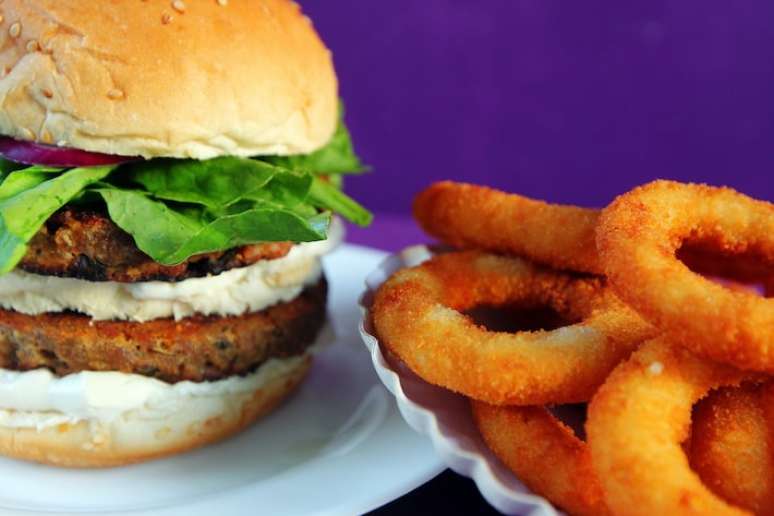USP research with 774 vegan followers challenges the stigma of nutritional deficiencies in this type of food, but warns against supplementing with processed foods
In study published in the journal JAMA Network Openresearchers from the Faculty of Medicine of University of Sao Paulo (FMUSP) analyzed the diet of over 700 followers of the veganism residents in Brazil.
The results indicate that, on average, participants consume the recommended amount of protein and essential amino acids. And they have a diet based primarily on unprocessed and minimally processed foods. However, it was possible to observe that those ingesting less industrialized food products, such as protein supplements and textured soy proteins, were more likely to have inadequate protein intake, suggesting that this population has some degree of dependence on nutrients coming from within. ultra-processed foods.
Coined by researchers at the USP School of Public Health, the term “ultra-processed” refers to formulations of substances obtained in industry through the fractionation of foods, in addition to the addition of chemical additives (colorings, flavorings, emulsifiers, thickeners, etc.) that make these products highly palatable.
“Our findings challenge the stigma that a vegan diet cannot provide the necessary amount of protein and essential amino acids that a person needs. As we have seen, it can be nutritionally adequate. In relation to ultra-processed foods, we observed that the vegans evaluated consumed lower amounts of these types of foods than the general population,” says Hamilton Roschel, coordinator of the research group on applied physiology and nutrition at the Center for Lifestyle Medicine at FMUSP and coordinator of the study, funded by the State Foundation for Research Support of São Paulo (Fapesp).
The researchers calculated protein and essential amino acid intake, as well as food consumption by level of processing. The information was based on a food diary – submitted by each of the 774 study participants – that contained information on all the food consumed during a day.
“It is known that foods of animal origin are, in general, denser not only in proteins, but also in essential amino acids. Meat, milk or eggs have more protein per gram of food than rice or beans, for example. Therefore, it was important to check whether this requirement was also met in diets consisting only of plant proteins”, explains the researcher.
Therefore, just as adequate protein consumption can be a problem in a vegan diet, a greater natural difficulty in reaching the necessary levels of essential amino acids is also expected.
In the analysis, the researchers identified that the participants’ diets consisted, to a large extent, of foods in nature or minimally processed (66.5% of energy intake), while ultra-processed correspond to 13.2%. In the Brazilian population in general, according to the Family Budget Survey (POF), the values are 44.9% for in nature and minimally processed and 23.7% for ultra-processed ones.
The study also identified a significant association between adequate protein intake and consumption of ultra-processed foods. “Although this population consumes a low amount of ultra-processed foods, a portion appears to depend on these types of foods to meet their protein needs. This is partly due to the fact that foods in nature are, in general, less protein dense, which has opened the way for the industry to explore so-called meat substitutes, which are gaining market share,” he says.
This is the case of products that imitate different types of meat using processed plant proteins, such as vegan burgers, sausages and nuggets, or other preparations such as cheese substitutes and derivatives, which use alternative plant proteins (such as soy, peas, rice or potatoes) to produce ultra-processed foods rich in plant proteins.
It is important to underline this Consumption of ultra-processed foods is associated with an increased risk of weight gain, diabetes, hypertension and other cardiovascular diseasesin addition to depression, such as certain types of cancer and premature death. On the other hand, while the full effects of ultra-processed plant-based products are not yet known, recent evidence suggests that they may be equally harmful to your health.
FMUSP researchers found that the main ultra-processed foods determining the adequacy of protein consumption on the menu of Brazilian vegans were textured soy protein (TSP) and plant-based protein isolate supplements.
“Although they are in the same classification as ultra-processed foods, foods like PTS and protein supplements are not necessarily harmful to your health, which is not the case for ultra-processed foods that contain high concentrations of fat, sugar, sodium, preservatives and artificial additives, for example,” Roschel emphasizes.
The researcher explains that, although several studies associate the broad category of ultra-processed foods with harmful outcomes, there is solid evidence that soy products are not harmful to health.
“Textured soy protein is an important source of protein and essential amino acids for vegans, despite being classified as ultra-processed. It is important to understand that there appears to be significant variability in the formulations of ultra-processed products, and while there is consensus that they should be avoided in general, it is unwise to ignore the clear distinctions between them,” the researcher says.
According to the researchers, the same can be said for plant-based protein isolate supplements. “The use of protein supplements is considered an evidence-based strategy to support muscle health in a variety of settings, such as when a food-based diet in nature and minimally processed foods do not meet the protein requirement. Another example would be the presence of a medical condition that requires another type of nutritional management. Plant protein supplements play an important role and should not be ignored.”
Roschel does, however, offer an important caveat: “Our data do not say that ultra-processed foods are good, nor should they be used to encourage their consumption. However, we cannot turn a blind eye to the important distinctions between them and the importance they have in certain contexts,” he muses.
“The study results suggest that policies that facilitate access to more natural and healthy foods will be needed, in addition to efforts for better nutrition education to promote better nutritional choices for this population. With the expansion of the plant-based market, government regulation is urgently needed to develop accessible products, transparent in their composition, of better quality and healthier”, he concludes.
You can read the article “Protein and amino acid adequacy and food consumption according to the level of processing in vegans in Brazil” Here.
Source: Terra
Ben Stock is a lifestyle journalist and author at Gossipify. He writes about topics such as health, wellness, travel, food and home decor. He provides practical advice and inspiration to improve well-being, keeps readers up to date with latest lifestyle news and trends, known for his engaging writing style, in-depth analysis and unique perspectives.








